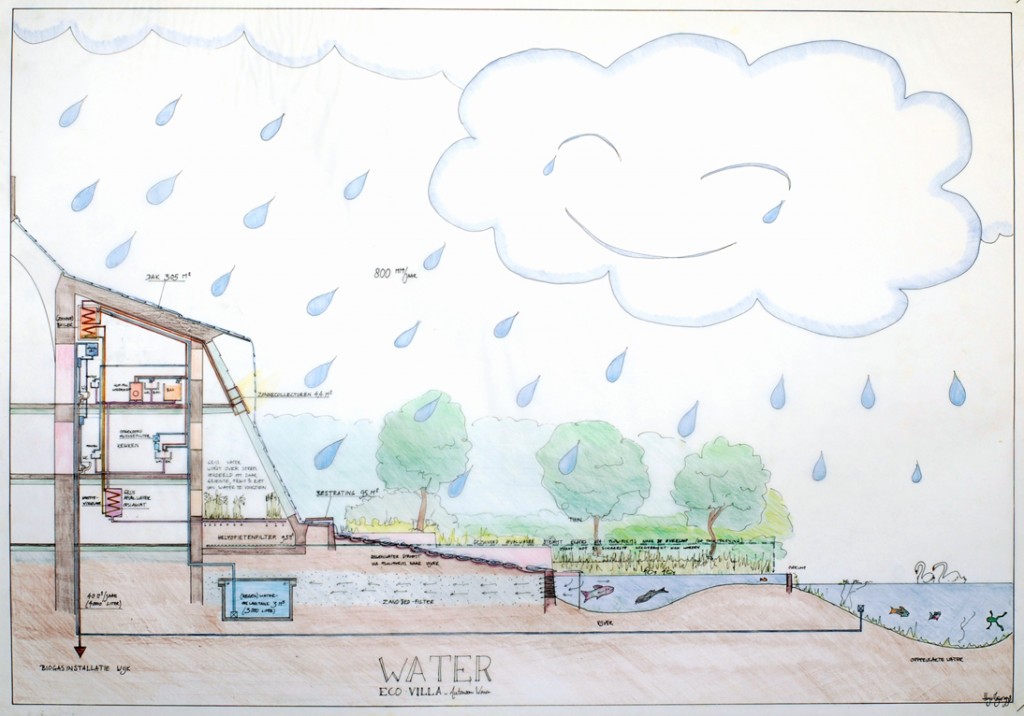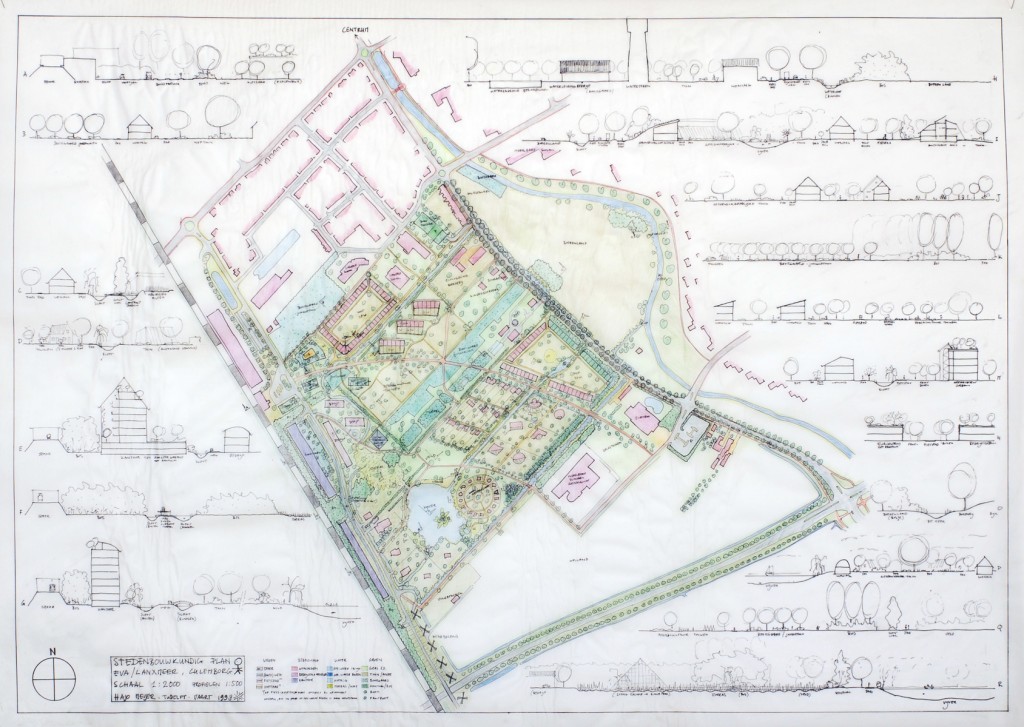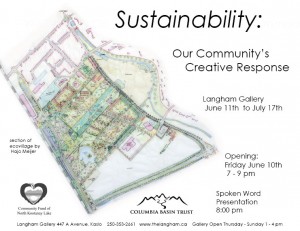The Langham Cultural Centre
recently organized two Community Issues Exhibitions “… to give a platform for citizens of the Kootenays, both artists and non, to speak to the issues of water and sustainability through the creative medium(s) of their choice.”
Judging from the impressive and diverse collection of art, and live performances at the opening, these are themes that are very much taken to heart by many Kootenaians!
Encouraged by one of my artist friends I decided to submit some work from my project Eco-villa: Autonomous Living to both exhibitions, crossing the boundaries of art, architecture and urban planning. Architectural drawings as art with multiple layers of information and thought!

This is the drawing that was on display during the Water show. It shows how all necessary water can be provided by rainwater collection in conjunction with reduction, re-use and recycling. Collected rainwater is filtered by a sand bed and made fit for drinking through a reversed osmosis filter (necessary when rainwater is polluted by industry). Waste water is being processed by a biological reed bed filter and human waste is directed to a Living Machine Bio-gas Plant.
The following is the Ecovillage plan currently on display in the Sustainability show:

Hey, did you notice?… It even made it on the poster!
The Ecovillage is based on permaculture principles with gardens, orchards, green space and water features throughout. It even incorporates a community farm that doubles as a petting farm. Situated adjacent to the train station it is car-free and planned around pedestrian and bicycle transportation. The Ecovillage has a high density ratio, with the highest density, including industry and office buildings, around the train station. Energy is generated by wind mills, PV and hot water solar panels, and a Living Machine processes the sewage into methane gas, that is used to fuel gas cook stoves. Rainwater is retained as long as possible within the community by a large amount of surface water (ponds and canals) and is collected by the roofs for household use.
These are all sustainable community principles that can be implemented, one way or another, in any community today, minimizing the environmental impact of our way of life.
Learn more about this Ecovillage here.
Go check out the original plan at the Langham, Thursdays through Sundays from 1 – 4 pm. The show is on until July 17th, 2011.

